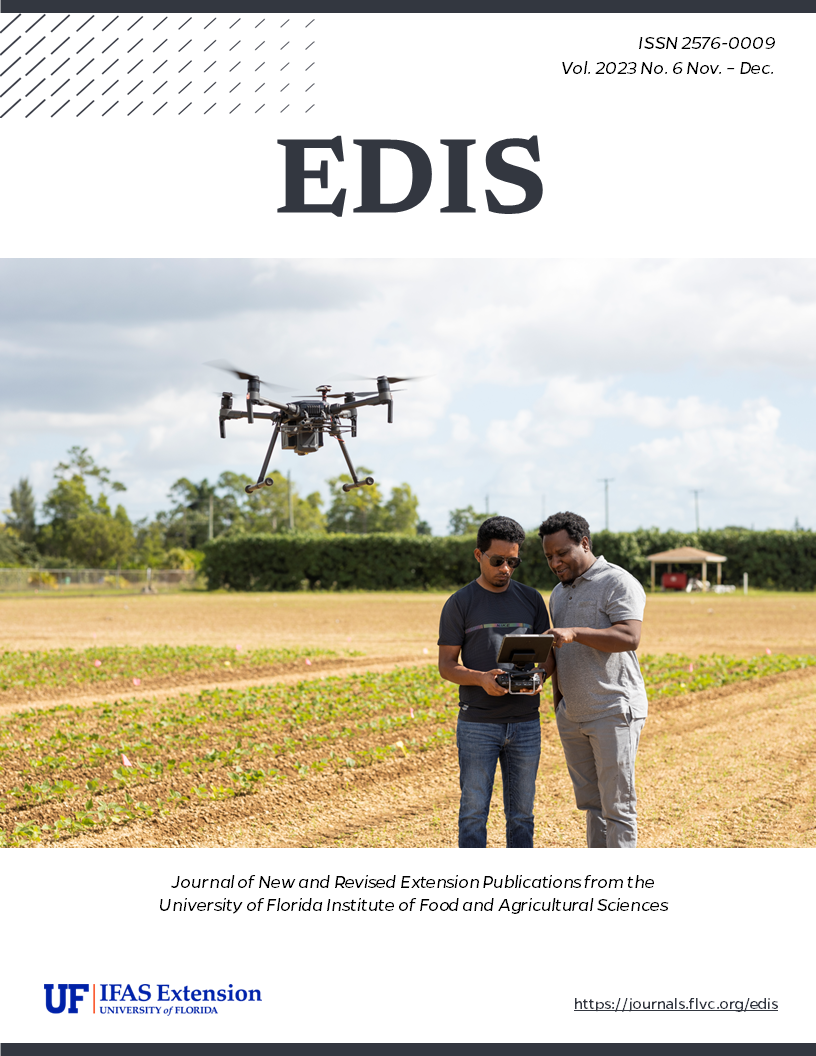Abstract
Rhizoma peanut hay has been demonstrated to benefit horses’ feeding behavior with reduced inactive time, which can result in lower risk for abnormal behaviors in stabled horses. This publication is intended to provide information to Extension agents, horse owners, and equine facility managers. Written by C. Vasco, J. Dubeux, E. Santos, C. Wickens, and L. Warren, and published by the UF/IFAS Department of Animal Sciences, October 2023.
References
Allen, E., C. C. Sheaffer, and K. L. Martinson. 2013. “Forage Nutritive Value and Preference of Cool-Season Grasses under Horse Grazing.” Agronomy Journal 105:679–684. https://doi.org/10.2134/agronj2012.0300
Catalano, D. N., C. C. Sheaffer, A. M. Grev, M. L. DeBoer, and K. L. Martinson. 2019. “Yield, Forage Nutritive Value, and Preference of Legumes under Horse Grazing.” Agronomy Journal 111:1312–1322. https://doi.org/10.2134/agronj2018.07.0442
Pain, S., and D. Revel. 2009. “Forage Quality Specifications: Identifying Predictors of Preference between Hays.” Barton, Australia: Rural Industries Research and Development Corporation.
Vasco, A. C. C. M., J. C. B. Dubeux Jr., A. M. Arias-Esquivel, L. K. Warren, and C. L. Wickens. 2022. “Feeding Behavior and Preference of Horses Fed Rhizoma Peanut Hay.” Journal of Veterinary Behavior 47:35–44. https://doi.org/10.1016/j.jveb.2021.09.011
Vasco, A. C. C. M., J. C. B. Dubeux Jr., M. O. Wallau, C. L. Wickens, and L. K. Warren. 2020. “Characterization of Forage Utilization and Pasture Management Practices on Florida Horse Operations.” Journal of Equine Veterinary Science 95:103253. https://doi.org/10.1016/j.jevs.2020.103253

